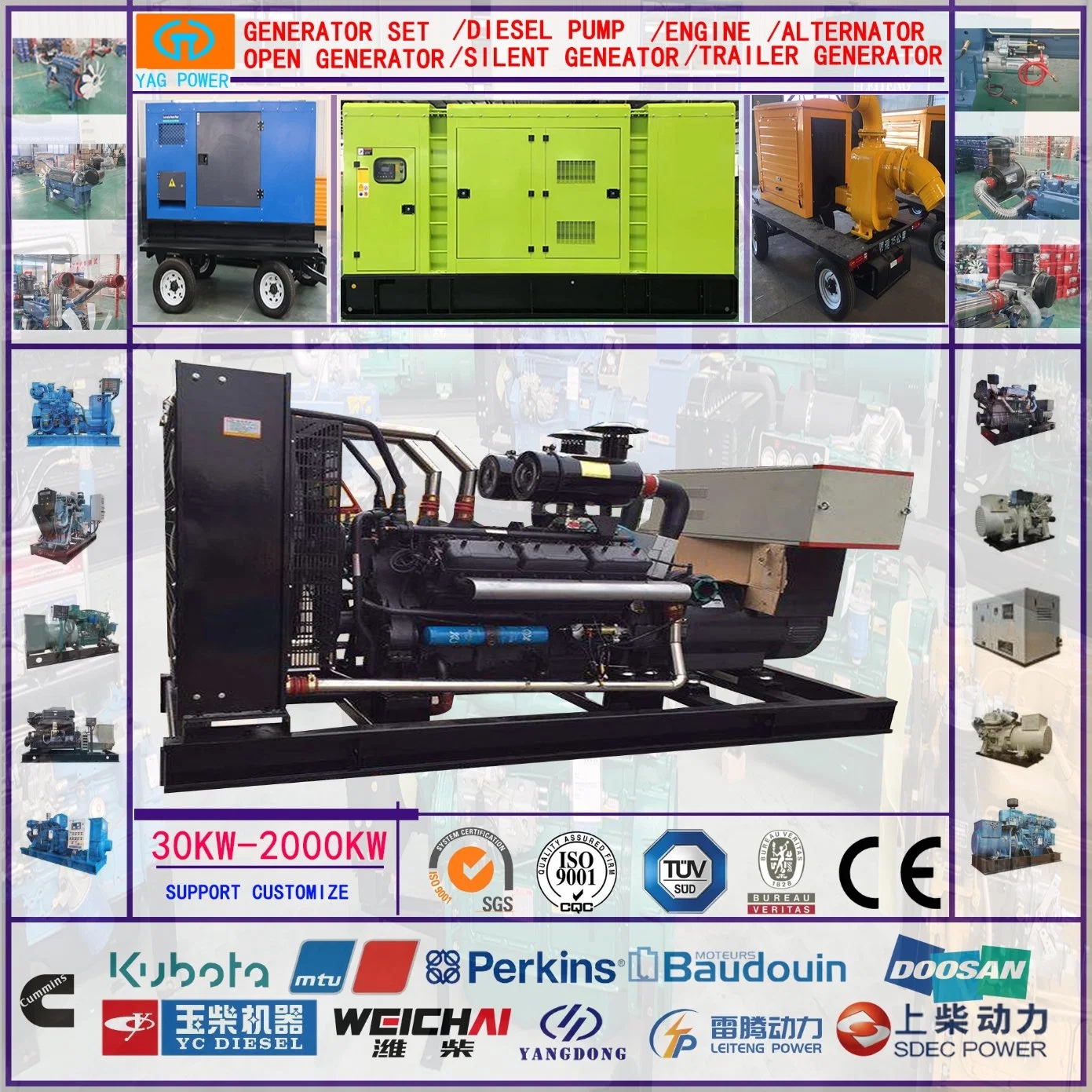Diesel Generators for Data Acquisition A Comprehensive Guide

Introduction
Data acquisition is a crucial aspect of modern industries, research facilities, and various other applications. It involves collecting, measuring, and analyzing data from different sources to make informed decisions and improve processes. To ensure uninterrupted data acquisition operations, a reliable power source is essential. Diesel generators have long been a popular choice for providing backup power in such scenarios due to their robustness, reliability, and efficiency. In this comprehensive guide, we will explore the role of diesel generators in supporting data acquisition systems, their benefits, considerations for selection, maintenance best practices, and more.
Role of Diesel Generators in Data Acquisition
Data acquisition systems are often sensitive to power disruptions, as they can lead to data loss, system shutdowns, and potential damage to equipment. To prevent these issues, a reliable and stable power supply is essential. Diesel generators play a critical role in ensuring continuous power supply for data acquisition systems, especially in locations where grid power may be unreliable or unavailable.
Key Benefits of Diesel Generators for Data Acquisition
1. Reliability: Diesel generators are known for their reliability and durability, making them well-suited for critical applications like data acquisition. They can provide continuous power for extended periods without significant downtime, ensuring uninterrupted data collection and processing.
2. Fuel Efficiency: Diesel generators are more fuel-efficient compared to other types of generators, providing cost savings in the long run. Their efficient fuel consumption makes them a practical choice for applications that require extended periods of operation.
3. Power Output: Diesel generators are capable of providing high power output, making them suitable for powering data acquisition systems with varying power requirements. They can easily handle the energy demands of multiple sensors, instruments, and data processing equipment.
4. Quick Start-Up: Diesel generators have a quick start-up time, allowing them to provide power almost instantly in the event of a power outage. This rapid response time is crucial for minimizing disruptions to data acquisition operations.
5. Longevity: Diesel generators are built to last and can withstand harsh operating conditions, making them a reliable investment for long-term use. With proper maintenance, diesel generators can provide years of dependable service for data acquisition systems.
Considerations for Selecting a Diesel Generator for Data Acquisition
When choosing a diesel generator for data acquisition applications, several key factors should be taken into consideration to ensure optimal performance and reliability:
1. Power Requirements: Determine the power requirements of your data acquisition system, including the total wattage needed to operate all equipment simultaneously. Select a diesel generator with a power output that meets or exceeds these requirements to avoid power shortages.
2. Fuel Efficiency: Consider the fuel efficiency of the diesel generator, as this can impact operating costs over time. Look for generators with high fuel efficiency ratings to minimize fuel consumption and reduce overall expenses.
3. Size and Portability: Choose a diesel generator that is appropriately sized for your data acquisition setup and consider the portability requirements of your application. Portable diesel generators are ideal for applications that may require moving the generator to different locations.
4. Noise Levels: Evaluate the noise levels produced by the diesel generator to ensure it complies with any noise regulations in your area and does not disrupt data acquisition operations.
5. Maintenance Requirements: Consider the maintenance requirements of the diesel generator, including routine servicing, oil changes, and filter replacements. Opt for a generator that is easy to maintain to minimize downtime and ensure reliable operation.
Maintenance Best Practices for Diesel Generators
Proper maintenance is essential to ensure the reliable operation of diesel generators for data acquisition. Follow these best practices to maximize the lifespan and performance of your generator:
1. Regular Inspections: Conduct regular visual inspections of the generator, checking for signs of wear, leaks, or damage. Address https://www.lkpowerplant.com/160kw-400kw/ to prevent further damage.
2. Oil and Filter Changes: Follow the manufacturer's recommended schedule for oil changes and filter replacements to maintain proper engine lubrication and prevent contaminants from affecting performance.

3. Fuel Quality: Use clean and high-quality fuel to prevent fuel system problems and ensure optimal generator performance. Consider using fuel additives to improve fuel stability and combustion efficiency.
4. Battery Maintenance: Keep the generator's battery charged and in good condition to ensure reliable start-up when needed. Inspect the battery terminals for corrosion and clean them as needed.
5. Load Testing: Periodically conduct load tests on the generator to simulate real-world operating conditions and ensure it can handle the power requirements of your data acquisition system.
Conclusion
Diesel generators play a vital role in supporting data acquisition systems by providing reliable and uninterrupted power supply. Their robustness, efficiency, and high power output make them an ideal choice for applications where continuous operation is critical. By considering key factors such as power requirements, fuel efficiency, and maintenance needs, you can select the right diesel generator for your data acquisition setup. Regular maintenance and adherence to best practices will help maximize the lifespan and performance of your generator, ensuring seamless data acquisition operations. With the right diesel generator in place, you can confidently power your data acquisition systems and collect valuable data for informed decision-making and process improvement.
